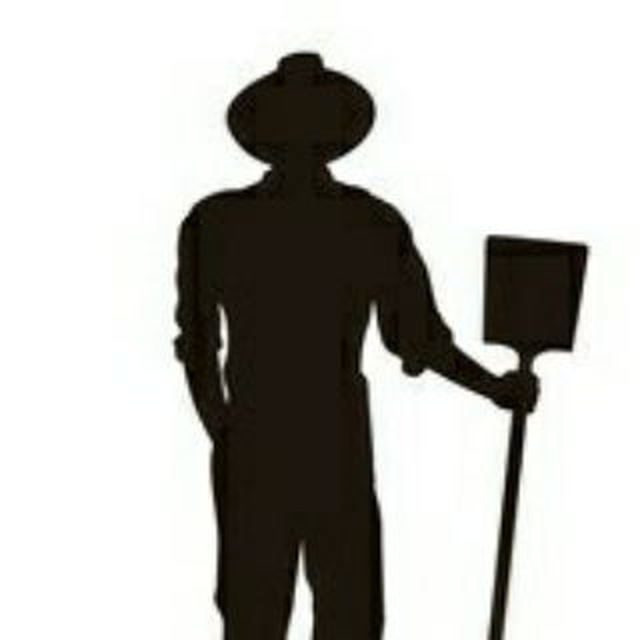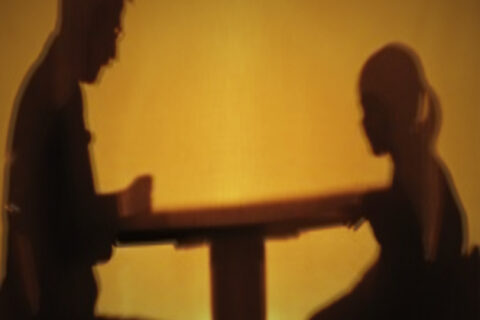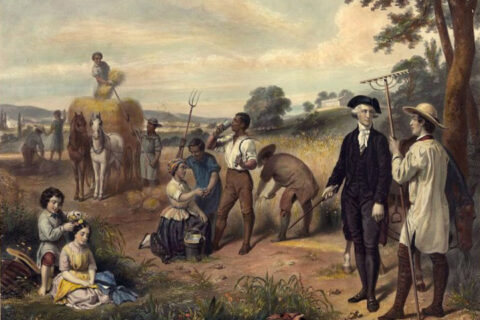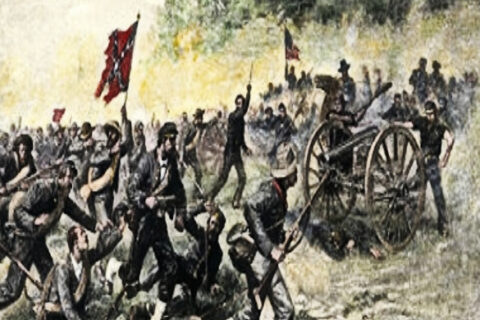General Jackson was not only a great soldier but a man as loving and as tender as a woman in his sympathies and interests. […] The incident has been mentioned in many a history as an evidence of his great, loving heart and regard for little children.
When I sat down and pounded out The Character and Influence of Stonewall Jackson (see here) on my well-worn keyboard a while back, I was certainly working under an awareness of the positive impression the discussion which inspired that article had left upon my son. What I was blissfully unaware of at that moment in time, however, was that my son had since purchased Dr. Dabney’s Stonewall Jackson biography, and that he was already several chapters into the book before I’d finished writing the article. I learned of these facts shortly after I’d sent our son a copy of my draft article, a day or two before publication of its edited version here at our little oasis.
It’s been some time (several years, in fact) since I last read the book above-mentioned; that being the case, I don’t rightly recall whether or not Dr. Dabney mentions little miss Janie Corbin within its pages or not. Whether she is or isn’t mentioned by name or association in that book is tangential to the point of this little write-up in any event. If you’ve watched the movie Gods and Generals with bated interest as I once did, then you likely recall some of the touching scenes interspersed throughout the movie painting General Jackson’s character in a light wholly consistent with the testimony forming my epigraph heading this article. The author of the lines of that testimony, you will learn the name of soon enough. If you continue reading, that is.
The character assassins out there (their name is Legion, for they are devils and they are many) are, and shall ever be, eternally vigilant in their designs to call into question, to mock, and to repudiate anything that was ever said or written about our Southern patriots and heroes painting them in a positive, honorable light. This is what they refer to generally as “Revisionist History,” and those of us who derive our knowledge of the facts in question from original and first-hand source material, “Revisionist Historians.”
I’ve never personally shied away from, nor failed to ‘own the insult,’ seeing as how it is accurate as far as it goes. Though not a professional nor an accredited historian, I’m certainly guilty nonetheless of disseminating a form of “revisionist history” in virtually all of my articles and essay-length stuff touching on the WBTS, just not the form our historically illiterate or otherwise unbelieving nemeses are in the habit of accusing me/us of.
The form of “revisionist history” I embrace and espouse would be more accurately denominated “Revisionist-Revisionist History,” just for the record. This is of course because the original revisionist historians and their histories were, by and large, of northern, not of Southern extraction, and factually incorrect, to put it mildly. There were certainly exceptions on both sides, but naming and discussing them is wholly outside the scope of this article and its purpose, so I will resist that temptation for the time being. I will take the subject up in another article, or series of articles, more likely, how about that?
What you’re currently reading in any case is an extended version of a little write-up I threw together in haste several days back, for the immediate benefit of my son above-mentioned, as well as his younger (19-year-old) brother; who was brought into the discussion late, having, to my delight, expressed his own desire to better acquaint himself with the subject and subject matter under investigation. The remainder of the article ‘below the fold’ consists of the full, original content I hastily threw together for the purposes aforementioned. It is offered to you, dear reader, with the full knowledge and enthusiastic approval of my two sons above-mentioned. Enjoy.
I thought you might enjoy this, since you’ve taken a new interest in the character and influence of Stonewall Jackson. You will recognize the story as depicted in a couple of scenes from Gods and Generals. In this case the story is told by little Janie Corbin’s mother, Roberta Cary Corbin Kinsolving, as part of a lengthy missive she wrote to the Confederate Veteran magazine titled, MEMORIES OF MOSS NECK IN THE WINTER OF 1862-63, published in the January 1912 issue of that publication.

[…]
“During the winter I had ample opportunity to see and know some of our most distinguished officers: Generals Lee, Stuart, A. P. and D. H. Hill, and others. Often seated by my window, I saw General Lee ride by like a crusader of old, General Stuart with his plumes waving in the wind, Von Borcke [I’ve read Von Borcke’s book, it’s pretty good] upon his huge horse (selected on account of his immense size), and other distinguished personages.”
“I became well acquainted with General Jackson. I saw him almost every day. He and the old Sorrel and “Uncle Jim” were most familiar objects. Uncle Jim was his well – known body servant, and the little sorrel his much-used steed. General Jackson was not only a great soldier but a man as loving and as tender as a woman in his sympathies and interests. “The bravest are the tenderest, the loving are the daring.” He was very fond of children, especially of little Jane Wellford Corbin, our only child, who was at this time about five years of age, winning in her ways, and the pet and darling of the whole staff. Indeed, she was beloved by all our army friends.”

“General Jackson would send for her to come to the office and see him in the mornings. She would play there for hours at a time. She would sit on the floor, cut paper dolls, and entertain the General with her childish prattle. One favorite amusement of his as well as of hers was her folding a piece of paper and cutting a long string of dolls all joined together in ranks which she called her “Stonewall Brigade.” I can imagine a smile and a merry twinkle in his eyes as he scanned these miniature soldiers, funny little bow-legged fellows they were. I have some of them now between the leaves of my old Bible. I am sure any of the old veterans would laugh to see their diminutive representatives.”
“Janie particularly admired the new military cap with its broad gilt band, not long before sent to the General by Mrs. Jackson, and she also admired the new uniform which I have heard was given to him by Gen. J. E. B. Stuart, which was worn the day of the battle of Fredericksburg, making him thus unconsciously a target for the enemy. One day he took the end of his pen knife, and, ripping the band from the cap, he pinned it round the child’s hair like a coronet. He said: “Janie, it suits a little girl like you better than it does an old soldier like me.”
“She came running in, her eyes sparkling, to show it to mother and to tell what he said. Afterwards she wore it in the same ornamental way when she was dressed for the evening. Regally she wore her crown: the gold of the band blended with the gold in her hair. Dear little girl, we did not dream that for this gift of General Jackson her name would become historic. The incident has been mentioned in many a history as an evidence of his great, loving heart and regard for little children. The little piece of braid, now faded and tarnished, I kept and am preserving still as a precious souvenir with priceless associations.”
“Not many weeks afterwards this lovely child was seized with malignant scarlet fever, and in less than forty-eight hours this dreadful scourge of childhood had ended her sweet young life. She died the very morning after General Jackson left.”
Janie’s father was Richard Corbin, brother of Spotswood Wellford Corbin. Assuming you don’t recognize the latter’s name or who he was, I will tell you: he was married to Commander Maury’s biographer-daughter, **Diana Fontaine Corbin. Janie’s father, Richard, died in the war about six months after little Janie died of Scarlet Fever. Hence, the reason her mother remarried to Mr. Kinsolving.
[End of original write-up.]
**Readers interested in the extraordinary life and achievements of Matthew Fontaine Maury may find, here, his future biographer, 14 year-old Diana Fontaine Maury (“Nannie Curly”) dutifully recording her father’s dictation, while keeping time to “The Song of the Shirt.”
In the dying words of General Jackson, “Press on, my brave men; Press On!”







I’ll have to admit I haven’t seen ‘Gods and Generals’. I did watch the prequel ‘Gettysburg’, but didn’t really care for it (too much Yankee preachin’ about slavery). Some have asked about films for their kids. I’d recommend ‘Warriors of Honor’ for both kids and adults. Some people just don’t like to (or just won’t) read, but the separate treatments of Jackson and Lee are very good in it!
https://www.youtube.com/watch?v=23AZ7dPIg2Q
Thank You for the recommendation and the link.
You are the best Mr. Morris.
So nice to see you posting articles again.
God Bless You Sir and God Bless the Southland.
It’s become my belief that most of General Lee’s great victories can be summed up in two words: Stonewall Jackson.
He wasn’t all that successful after Chancellorsville.
I think Jackson would have made a difference at Gettysburg for sure. Lee was still masterful on the defensive though, as at Spotsylvania and Petersburg.
Please excuse the lateness of this reply Mr. Morris. I have no excuse but to say I somehow missed both articles when they were first published. Remedied now, though! At any rate, I’d like to commend you for these 2 articles, Sir. Very good!! I am a big fan of General Jackson, and have a few books regarding him. I’ve put the books listed in your articles in my book cart, and will also purchase them. Many thanks for the suggestions.
As to your mention of yankee(sic) revisionism (spit!), I, for one, would be most interested in reading the/those articles that you might do regarding that subject!
Y’all take care,
Mike in FLA.